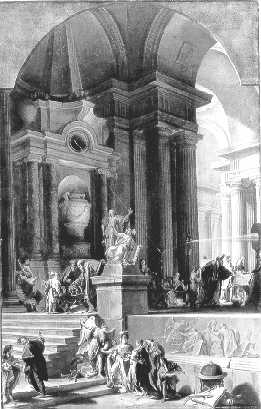
Eighteenth-century writers were fond of declaring that theirs was - or ought to be - an age of reason. As the German philosopher Immanuel Kant admitted, it was not yet an enlightened age - too much progress remained to be made for such a boast to be justified. But the process of enlightening was definitely in full sway. It was, Kant said, an age not of light, but of enlightenment.
But what was enlightenment? Following from Kant’s observation, we can say first of all that enlightenment was not so much a thing, state, or philosophical position, as a process. It was recognisable by new practices devoted to judging between right and wrong, or between rational and superstitious. Those practices were for the first time the prerogative of something called a "public." First in France, then across Europe and into America and the other colonial possessions, men and women proclaimed themselves members of this body. The public alone, they claimed, had the right to determine matters of policy, philosophy, and knowledge in general. Those who remained outside the public, either because they occupied irreconcilable social positions, like the king, or because they could not participate in its literary communication, like the illiterate bulk of the population called "the people" - were deemed irresponsible, capricious, or foolish. Sometimes they were even reckoned to be dangerous. From now on, religion, monarchy, and natural knowledge would alike stand or fall according to new criteria. Superstition must be swept aside wherever it could not be approved by the tenets of "public reason."
But was public reason all we might suppose it to be? Lists of "philosophical books" imported surrepitiously into France included as many classics of pornography as of political or scientific reasoning. "The public" itself excluded more people - women, non-Europeans, and rural inhabitants even of European countries - than it embraced. And it was the age not just of Newtonianism - celebrated in this visionary monument - but of medical quackery and fraudulent technological "projecting." For in the world’s first society of consumers, science was a major commodity. Lecturers lived and died by their ability to entertain and amaze paying crowds with displays of "active powers" such as electricity and magnetism. In their hands, reason, whatever else it may have been, was not disinterested.